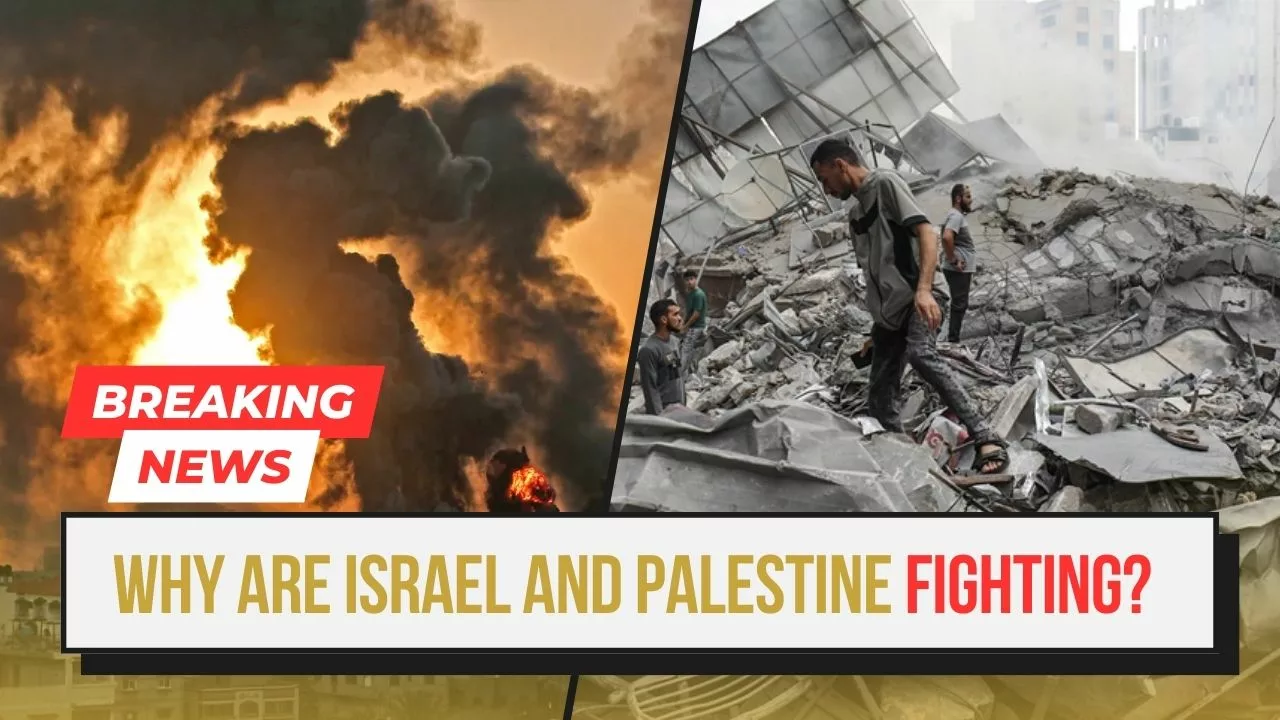The Israeli-Palestinian conflict has been ongoing for decades and has claimed tens of thousands of lives and displaced many millions of people.
The conflict has its roots in a colonial act carried out more than a century ago when the British government issued the Balfour Declaration in 1917, which promised the establishment of a Jewish homeland in Palestine.

The conflict escalated in 1948 when the State of Israel was created, sparking the first Arab-Israeli War.
The war ended in 1949 with Israel’s victory, but 750,000 Palestinians were displaced, and the territory was divided into three parts: the State of Israel, the West Bank (of the Jordan River), and the Gaza Strip.
The conflict has been characterized by violence and military confrontations between Israel and Palestinian militant groups such as Hamas and Islamic Jihad.
In the summer of 2014, clashes in the Palestinian territories precipitated a military confrontation between the Israeli military and Hamas in which Hamas fired nearly three thousand rockets at Israel, and Israel retaliated with a major offensive in Gaza.

The skirmish ended in late August 2014 with a cease-fire deal brokered by Egypt, but only after 73 Israelis and 2,251 Palestinians were killed.
In May 2021, Israel and Hamas agreed to a cease-fire, brokered by Egypt, with both sides claiming victory and no reported violations.
More than two hundred and fifty Palestinians were killed and nearly two thousand others wounded, and at least thirteen Israelis were killed over the eleven days of fighting.
The conflict has its roots in a complex history of competing claims to land, resources, and political power.
The following are some of the key issues that have contributed to the ongoing conflict:
- Land: The conflict is largely about control of land.
Israel and the Palestinians both claim the same land, which includes Israel, the West Bank, and the Gaza Strip.
The Palestinians want to establish an independent state in the West Bank and Gaza Strip, with East Jerusalem as its capital.
Israel, on the other hand, wants to maintain control over the entire area, including East Jerusalem, which it annexed in 1967.
- Jerusalem: Jerusalem is a holy city for Jews, Muslims, and Christians, and both Israelis and Palestinians claim it as their capital.
The city has been a flashpoint for violence and tension between Israelis and Palestinians for decades.
- Refugees: The conflict has created a large population of Palestinian refugees who were forced to flee their homes during the 1948 war and subsequent conflicts.
Today, their descendants live as six million refugees in 58 squalid camps throughout Palestine and in the neighboring countries of Lebanon, Syria, Jordan, and Egypt.
- Security: Israel argues that it needs to maintain control over the West Bank and Gaza Strip to ensure its security.
Palestinians argue that Israel’s occupation of their land is a violation of their human rights and that it fuels violence and extremism.
Recent updates show that the conflict is ongoing, with clashes reported in the West Bank and Gaza Strip.
On October 9, 2023, Hamas launched an unprecedented assault on Israel, with hundreds of gunmen infiltrating communities near the Gaza Strip.
In response, Israel launched a bombing campaign in the Gaza Strip, killing more than 500 Palestinians.
The fighting resulted in a ceasefire mediated by Egypt, which is holding at the moment.
In conclusion, the Israeli-Palestinian conflict is a complex and long-standing issue that has claimed many lives and displaced millions of people.
The conflict is rooted in a history of competing claims to land, resources, and political power.
Recent updates show that the conflict is ongoing, with clashes and violence reported in the West Bank and Gaza Strip.







